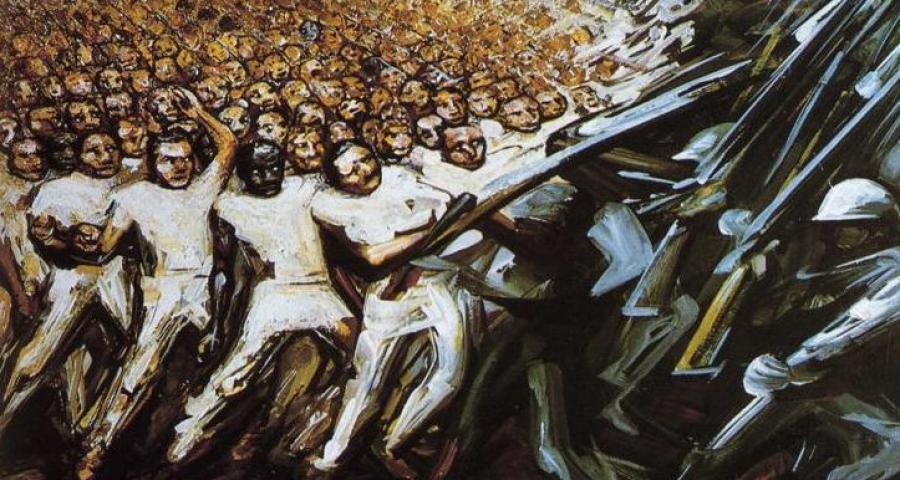In particular, I am concerned here to refocus away from the hitherto ‘ghostly’ character of Trotsky’s presence in this article to date and allow him to speak in the same way as Lukacs and Greenberg on their respective themes in parts 1 and 2. In particular, I want to introduce Trotsky’s concept - virtually unknown during the historical debates surveyed in Parts 1 and 2 - which he called “the ‘law’ of uneven and combined development”(UCD), the current widespread deployment of which has done so much to revive and consolidate Trotsky’s reputation as an important Marxist theorist, in addition to that of revolutionary strategist.
Read moreRealism, Modernism, and the Spectre of Trotsky: Part 2, Greenberg
Jackson Pollock’s She-Wolf (1943).
In the first part of this article I discussed Lukács and his theory of Realism. I now want to turn to Clement Greenberg, “the major theoretical figure of the late modern age and indeed that theoretician who more than any other can be credited as having invented the ideology of modernism full-blown and out of whole cloth.” At his best, Greenberg deserved his reputation as a critic quite as much as Lukács for his clarity of description, refusal of jargon and, above all, focus on the materiality of the work of art. The most productive phase in his career spanned the 20 years between his first major article, “Avant-Garde and Kitsch” (1939) and the codification of his mature views in “Modernist Painting” (1960).
Read moreRealism, Modernism, and the Spectre of Trotsky, Part 1: Lukács
David Alfaro Siqueiros' Lucha por la Emancipacio.
What is the relationship between artistic movements and the historical periods during which they first appeared? Can the methods associated with these movements be detached from their original context for the benefit of later artists? Do the answers to these questions depend on which movements and periods we are discussing? The issue is of more than academic interest. Serious contemporary artists want to produce work relevant to, and critical of the societies in which they live; but in doing so, are they free to draw on any methods, from any point in history, or will only some be adequate to their needs? Should socialists expect them only to work with particular methods, and criticise them when they do not?
Read more

